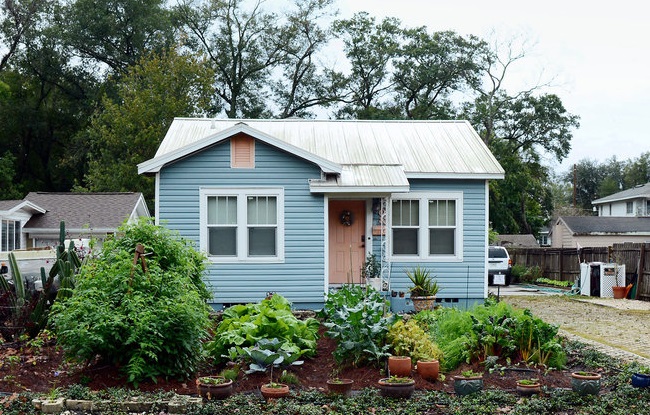A new study by UC Santa Barbara research professor David Cleveland suggests turning lawns into vegetable gardens can reduce greenhouse gas emissions. Landscape and Urban Planning published the findings which demonstrated gardens produced 2 kg lower greenhouse gas emissions per kg of vegetable than purchased vegetables..
Cleveland said,
“In addition to reducing greenhouse gas emissions, there are other potential environmental, social, psychological and nutritional advantages to growing food yourself, whether in a household, community or school garden.”
Grassy Lawns, Or Else!
Individuals sometimes face challenges when they do convert their lawns into gardens, however. Earlier this year, a Sugar Creek, MO family was given four days to get rid of their front yard garden or face a fine after an ordinance was passed prohibiting vegetation within 30 feet from the street. And last month, a Miami-Dade judge upheld an ordinance banning front yard vegetable gardens after residents sued the village when they were ordered to get rid of their beloved garden of okra, kale, lettuce, onions, spinach and a dozen or more varieties of Asian cabbage or face fines of up to $50 a day.
Victory Garden
One case may serve as a model for victory. When Orlando’s City Council threatened to fine the Helvenstons $500 a day until they uprooted their front yard garden and replace it with lawn, Institute for Justice organized a nationwide protest – distributing radish seeds for individuals in Orlando and beyond to plant in their yards. The cause received a lot of public support and Orlando’s City Council was flooded with emails. As a result, the City Planner’s Office drafted a new ordinance to allow front yard gardens in Orlando.
Featured Image: Helvenston Garden. Credit: New York Times


